Program Overview
The Lucas Center for Faculty Development promotes excellence and innovation in teaching and learning at FGCU. We offer programs for new faculty and their seasoned colleagues that aim to transform classrooms and careers. While most of our initiatives are targeted to faculty, we offer a robust selection of programming that supports, facilitates, promotes and advances best practices within our diverse learner-centered campus community.
Academies
COURSE DESIGN ACADEMY
The Course Design Academy (CDA) will meet for three full days to explore learner-centered design principles, discuss ideas in small learning teams, and collaboratively work towards designing more intentional, transferable, and transformative learning. Over the three days, participants will apply principles of intentional design to their courses, explore connected and transparent ways to assess what their students know, explore strategies to support significant long-term learning, and plug these ideas into their courses. The goal is for participants to end the week with new and improved courses designed to engage all students and promote their success.
2025 Dates: May 12th, 14th & 16th
Time: 9:00a-3:00p
Location: LIB 221 (Lucas Center)
Assignment DEsign Academy
Assignments are powerful teaching tools, and their design is one of the most consequential intellectual tasks that faculty undertake in their work as educators. Yet that work is often private and unavailable for collegial exchange and knowledge building. This Academy will be an opportunity to talk with other faculty interested in trading ideas about the design and use of the various tasks, projects, papers, and performances we set for our students. Thoughtfully designed assignments can support learning-centered curricular and pedagogical reform and create clearer, more powerful pathways for students. And for faculty, working together on the design and peer review of assignments has turned out to be a powerful professional development experience. This Academy makes use of resources developed by the Transparency in Learning and Teaching project, and you can find additional information here that may help you decide if this Academy is right for you.
2025 Dates & Times: May 20th from 8:30a-1:00p & May 22nd from 9:00a-12:00p
Location: LIB 221 (Lucas Center)
ACADEMIC PORTFOLIO WORKSHOP
The Academic Portfolio Workshop is a week-long, mentored experience for faculty who intend to submit a promotion portfolio within the next two years. Adapted from a model designed by Peter Seldin, co-author of The Academic Portfolio: A Practical Guide to Documenting Teaching, Research, and Service, participants are assigned to a faculty coach who provides advice, editing, and feedback on the narrative portions of the promotion portfolio. The workshop will 1) aid you in developing an organizational framework to showcase your strengths and accomplishments as a faculty member and 2) offer guidance on how to organize your promotion portfolio to meet university standards. Full-time faculty members are eligible to participate.
2025 Dates & Times: Week of June 2ndLocation: LIB 221 (Lucas Center)
PEER OBSERVATION OF TEACHING WORKSHOP
Peer observation of teaching is a supportive and developmental process to encourage dialogue about teaching among collaborative peers. Research suggests that the peer observation process can benefit the teaching of both observer and observed (Hendry & Oliver, 2012). Therefore, by participating in this workshop you will 1) increase your capacity to provide a valuable service to your peers and the university, and 2) engage in professional development to enhance your own teaching.
2024 Dates: December 16th, 17th & 19th
Time: 9:00a-3:00p
Location: LIB 221 (Lucas Center)
Adjunct Academy
The Adjunct Academy is a professional development opportunity for adjunct instructors who are in good standing with their department and have taught for two consecutive years at FGCU. The purpose of the Adjunct Academy is to provide evidence-based pedagogy training to adjunct instructors who wish to enhance their skills and knowledge in teaching and learning best practices. Upon completion of all components of the Adjunct Academy compensation will be increased by $700 per three credit hour course. Note: this academy will be available twice per academic year, depending on demand.
Over a 12 month timeframe, the following components must be completed:
- Four two-hour, in-person pedagogy workshops, (including preparation for each session and a post-session assignment to be submitted on Canvas).
- Completion of Canvas online workshop
- Participation in one additional Lucas Center or Digital Learning academy or program OR three single session pedagogy workshops/presentations.
- One peer observation of teaching, documented by an observation report written by the peer observer.
Please contact lucascenter@fgcu.edu for additional information.
Intermittent Academies
These academies are available according to faculty/staff interest.
EARLY CAREER ACADEMY
Climbing the Ladder to Successful Teaching, Scholarship and Service
Since the inception of the New Faculty Academy, we have had requests to develop similar experiences for faculty members who have been at FGCU for some time. The Lucas Center for Faculty Development has developed an annual academy to support faculty at early career (Instructor I, Assistant Professor, Assistant Librarian). The topics we cover and the tools we will provide will prepare, lead, guide, and challenge you to define your goals for the next 3-5 years, to support the attainment of your goals and identify how to integrate the three areas of faculty work with your personal and professional life. Imagining what your career can look like will prepare you to be an agent for your own growth and development. We hope you join fellow faculty members as they explore and plan their future career path.
ESTABLISHED CAREER ACADEMY
Managing your Career as Running a Marathon: Reflection & Transformation
Since the inception of the New Faculty Academy, we have had requests to develop similar experiences for faculty members who have been at FGCU for some time. The Lucas Center for Faculty Development has developed an annual academy to support faculty at established career (Instructor II & III, Associate Professor/Associate Librarian, Professor/University Librarian). The goal of this academy is to maintain instructional vitality, explore the role of advocacy and leadership, and to develop ways to engage in the reciprocal nature of mentoring. You will participate in a community of scholars and collaborate with a colleague across disciplines.
Book Clubs
Book Clubs are scheduled for fall and spring terms. Faculty and staff members can sign up for one club and must commit to reading assigned pages and participating in every discussion. The Lucas Center provides a copy of the book for participants to keep.
By: Isis Artze-Vega, Mays Imad, Flower Darby, Bryan Dewsbury
Written by renowned teaching and learning experts, this guide offers concrete steps to help any instructor striving to ensure that all students―and, in particular, historically underserved students―have an equal chance for success. Here you’ll find actionable tips, grounded in research, for teaching college classes online, in person, and everywhere in between.
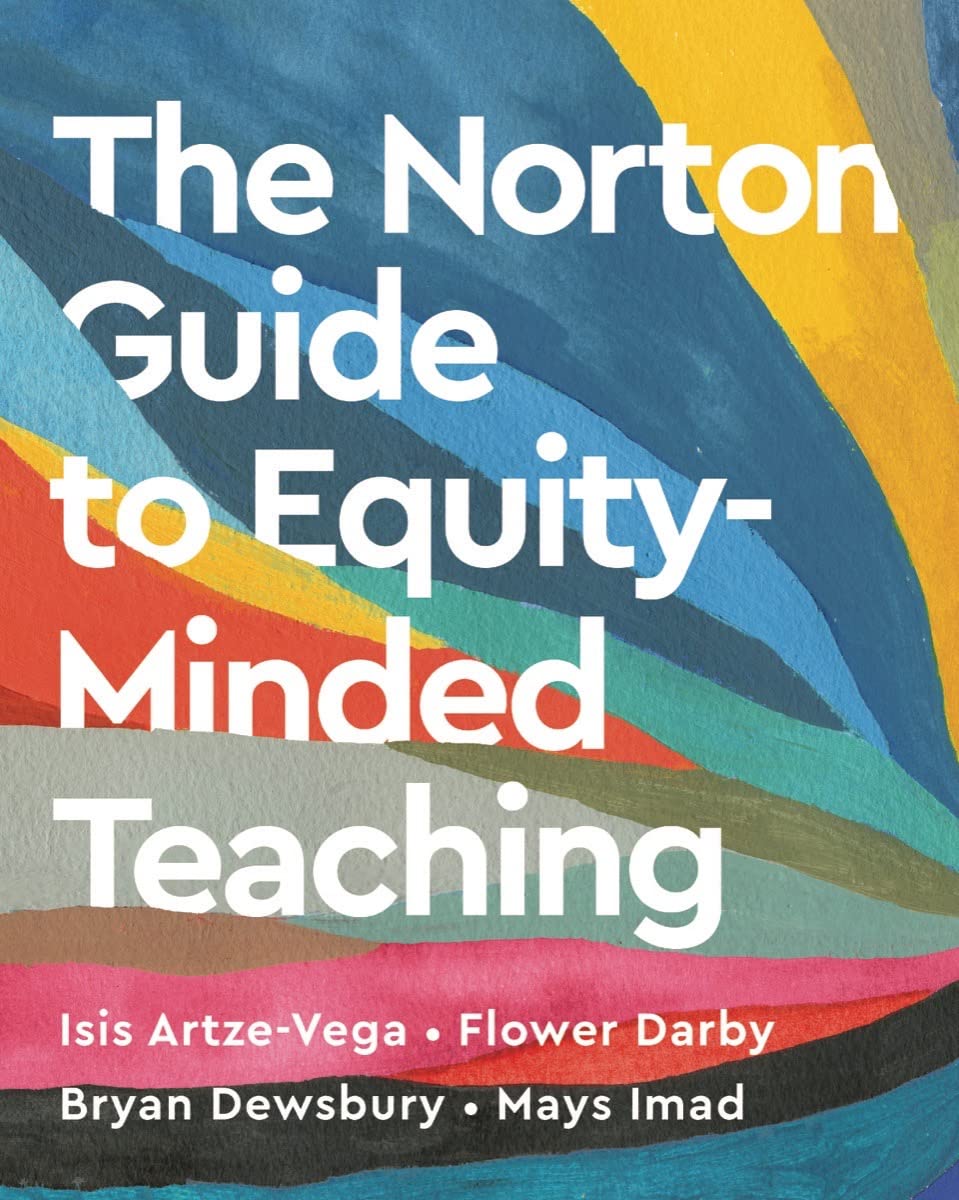
Facilitated By: Delphine Gras
Dates: Mondays, 1/27, 2/17, 3/10 & 3/31
Time: 11:30a-12:30p
Location: Lucas Center (LIB 221)
Modality: In-Person
Teaching Community: A Pedagogy of Hope
By: bell hooks
In Teaching Community bell hooks seeks to theorize from the place of the positive, looking at what works. Writing about struggles to end racism and white supremacy, she makes the useful point that "No one is born a racist. Everyone makes a choice." Teaching Community tells us how we can choose to end racism and create a beloved community. hooks looks at many issues-among them, spirituality in the classroom, white people looking to end racism, and erotic relationships between professors and students. Spirit, struggle, service, love, the ideals of shared knowledge and shared learning - these values motivate progressive social change.
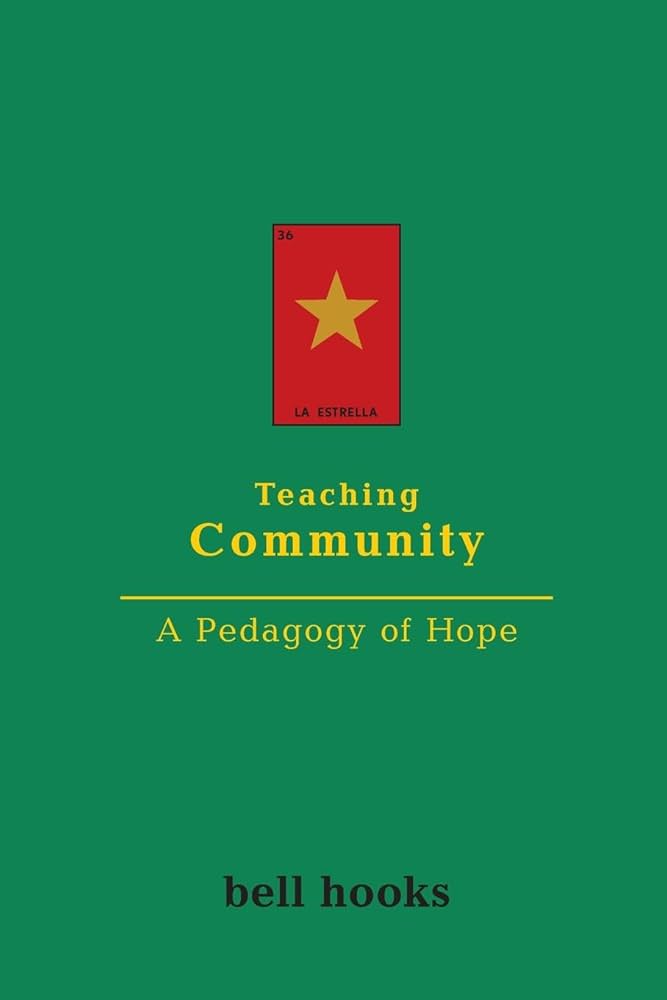
Facilitated By: Bill Reynolds
Dates: Thursdays, 1/30, 2/20, 3/13 and 4/3
Time: 1:00p-2:00p
Location: Lucas Center (LIB 221)
Modality: In-Person
Radical Grace: Essays and Conversations on Teaching
By: Candice Renee Price and Miloš Savic
In teaching, when do we have instances of grace, or as the dictionary defines it, courteous goodwill? Are those instances going against what we’ve been trained to do when teaching, or against what the norms are of academia? Throughout this book, Drs. Candice Price and Miloš Savic have conversations and essays about how they've learned to believe in radical grace for their students. Going through their own personal stories, they provide reasons for their teaching philosophy.
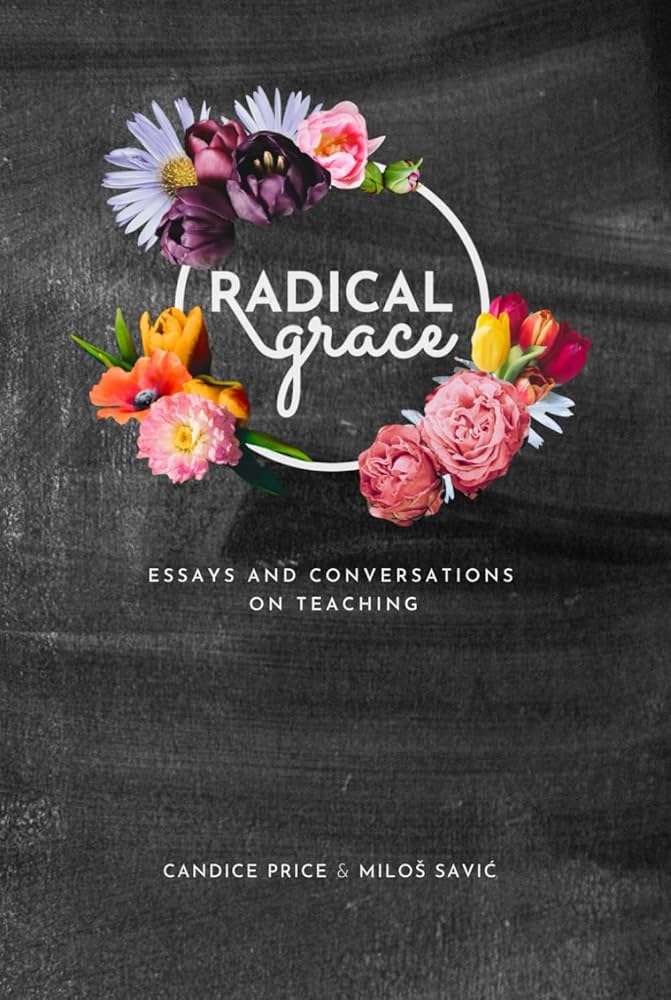
Facilitated By: Julie Griffin
Dates: Wednesdays, 1/29, 2/26, & 3/26
Time: 12:00p-1:00p
Location: Lucas Center (LIB 221)
Modality: In-Person
Becoming a Critically Reflective Teacher
Building on the insights of his highly acclaimed earlier work, The Skillful Teacher, and applying the principles of adult learning, Brookfield thoughtfully guides teachers through the processes of becoming critically reflective about teaching, confronting the contradictions involved in creating democratic classrooms, and using critical reflection as a tool for ongoing personal and professional development.
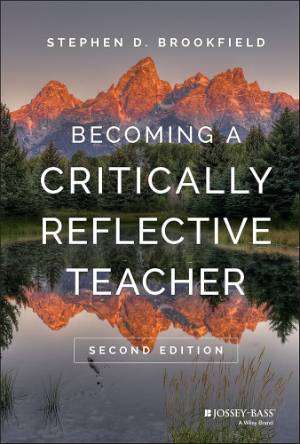
Facilitated By: Denise Allen
Dates: Mondays, 1/27, 2/24, 3/24 & 4/21
Time: 2:00p-3:00p
Location: Lucas Center (LIB 221)
Modality: In-Person
The Art and Science of Connection: Why Social Health Is the Missing Key to Living Longer, Happier, and HealthieR
Exercise. Eat a balanced diet. Go to therapy. Most wellness advice is focused on achieving and maintaining good physical and mental health. But Harvard-trained social scientist and pioneering social health expert Kasley Killam reveals that this approach is missing a vital component: human connection.
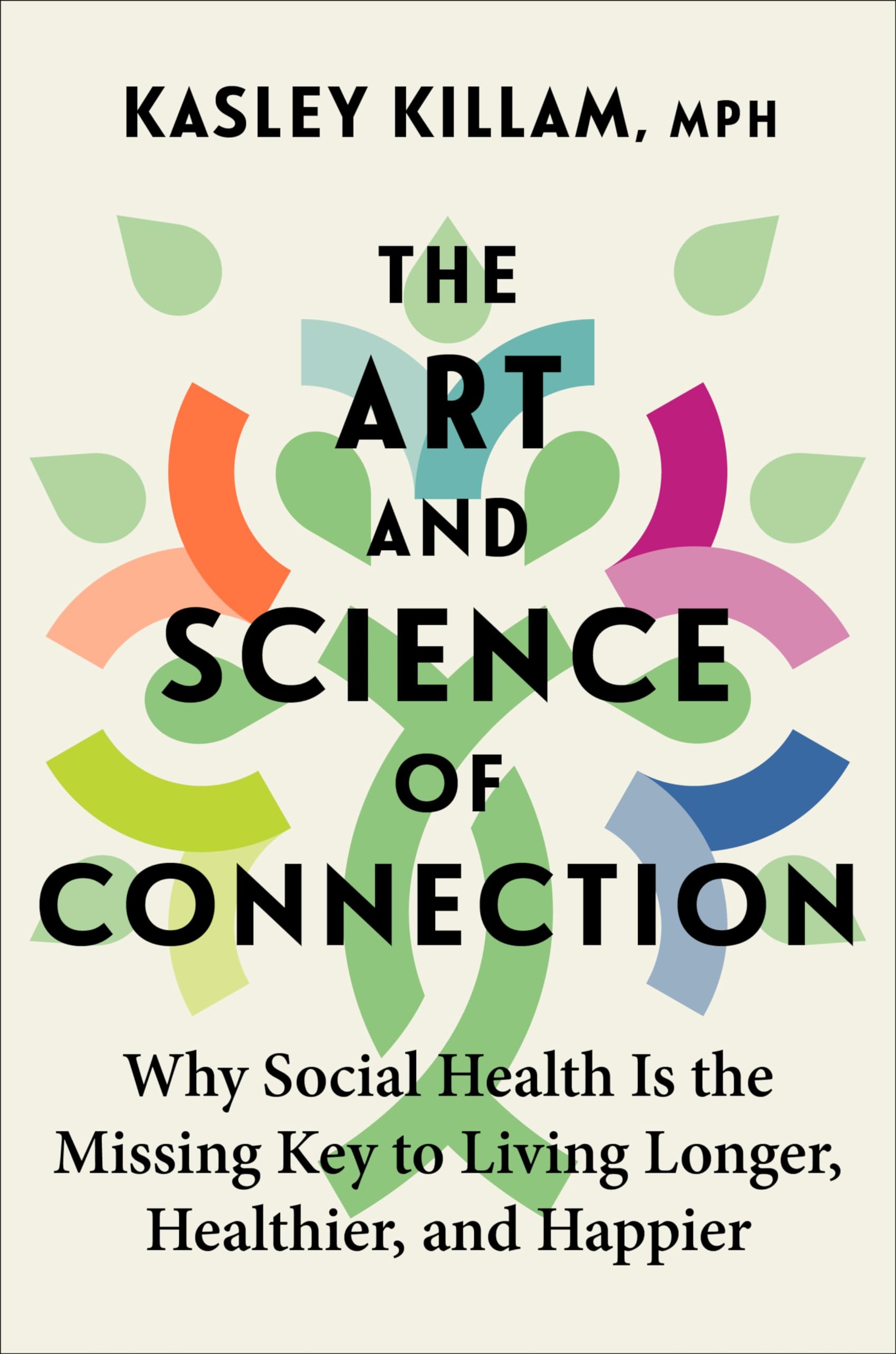
Facilitated By: Cara Ryan
Dates: Tuesdays, 1/28, 2/25, & 3/25
Time: 12:00p-1:00p
Location: Lucas Center (LIB 221)
Modality: In-Person
Dialogues on Culture & Community
The Dialogues on Culture & Community are open to faculty, staff, and students who are interested in thinking together about our individual and collective roles in shaping our community and contributing to the culture of FGCU. We encourage and welcome participation from members of all of these groups, and we hope you will bring a friend or student and end your month in dialogue with engaged and committed colleagues. Click here for more information on the Dialogues on Culture and Community sessions.
Dialogues sessions take place on the final Friday* of each month from 12:00p-1:15p in the Lucas Center (LIB-221). Feel free to bring a lunch. Drinks and snacks will also be available in the center.
*Sessions are rescheduled to alternate Fridays when the final Friday occurs during a break, holiday or a conflict within the Lucas Center. If you are not receiving our emails regarding these sessions, please reach out to lucascenter@fgcu.edu and we will add you to our email list so you can stay up to date on the Dialogues sessions!
Here's what participants in the Dialogues have to say about the experience:
"The Lucas Center’s monthly Dialogues on Culture and Community sessions have become an important part of my schedule here at the university. I look forward to the sessions and always encourage others to attend. I am a naturally curious person, and the conversations encourage curiosity about all kinds of things happening in our lives, both on campus and beyond. These dialogues encourage faculty, staff, and students to discuss pivotal issues and engage in meaningful conversations in an atmosphere that is safe from judgement, where different viewpoints are not only heard but truly listened to and deeply discussed. Encouraging curiosity about people with different views and openly discussing these experiences can go a long way to promote mutual respect, building community with others. The Dialogues on Culture and Community promote a sense of community that I don't find anywhere else on campus."
"It is rare that we have the chance to have opportunities for open dialogue about the nature of our campus culture with such a diverse group of individuals. I have found these sessions stimulating, insightful, and hopeful. I would love to see more colleagues from across campus attend as each person brings such an important and unique perspective."
"My ongoing experience with the Lucas Center Dialogues on Culture and Community has been a blessing. It allows me to share my hopes and dreams of creating a better home for students, staff, and faculty to enhance lifelong learning. The group comprises enthusiastic collaborators who are welcoming, understanding, and passionate about our work. The dialogues inspire everyone to better serve our FGCU family and local community. They remind us to be responsible, productive, and engaged in daily activities and to see how our work enhances FGCU's culture. Please join us and bring a friend!"
"The Lucas Center's Dialogues on Culture and Community sessions have been an invaluable forum for connection and growth within our university community. Each monthly gathering has offered a unique opportunity to hear diverse perspectives from colleagues across campus, enriching my understanding of our shared experiences at FGCU. These sessions have not only strengthened my sense of belonging within the university but have also fostered meaningful connections with colleagues I might not have otherwise met. The open, welcoming environment has encouraged authentic dialogue and helped build bridges across different departments and roles. Having participated in these sessions over time, I've come to appreciate how they contribute to creating a more connected and inclusive campus culture."
"To me, the Lucas Center Dialogues on Culture and Community is a place to come together to connect without expectation or assumption. I never know who will be there (though I love to see familiar faces from month to month) nor do I know what we will talk about, but I know that when I leave, I feel full (not just from the snacks and seltzers!), and more grounded in the campus community. The bonds I have created have been meaningful, thoughtful, and long-standing. I'm grateful to the Lucas Center for holding the space and keeping it a regular offering without judgement. I know if I miss a month or two due to conflicts, I will be welcomed back fully and joyfully."
Faculty Learning Communities
Faculty Learning Communities (FLCs) are informal groups of faculty members who meet on a regular basis to explore topics of common interest. Groups may discuss relevant articles and classroom examples. Some groups may pose questions for the group to answer or seek problem solving help. Other groups may develop research projects or begin scholarly writing groups.
Lucas Faculty Fellows 2024-2025
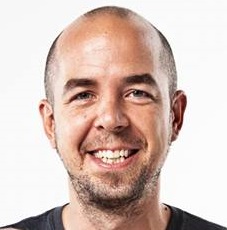
Jason Elek
Instructor III/Co-Director, Sanibel Island Writer's Conference
Language & Literature
Focus of Fellowship: Empowering faculty across the university to level up their writing instruction via
workshops, interdisciplinary partnerships, research, and publishing.
jelek@fgcu.edu | 239-590-1105
-
Reports & Resources
Toggle More Info
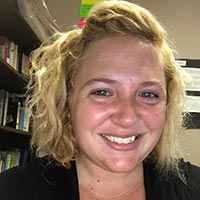
Elizabeth Weatherford, M.A.
Instructor II
Language & Literature
Focus of Fellowship: Researching and demonstrating how Universal Design for Learning can be used to increase
student engagement, performance, and instructor satisfaction.
eweatherford@fgcu.edu | 239-590-7773
-
Reports & Resources
Toggle More Info
Previous fellows' resources
-
Katie Johnson (2023-2024)
Toggle More Info -
Jessie Marcolini (2022-2024)
Toggle More Info -
Brenda Thomas (2023-2024)
Toggle More Info -
Megan Atha (2022-2024)
Toggle More Info -
Georgia Strange (2022-2023)
Toggle More Info -
Burcu Izci (2020-2022)
Toggle More Info -
Megan McShane (2020-2022)
Toggle More Info -
John Roth (2020-2022 & 2023-2024)
Toggle More Info -
Charles Xiaoxue Wang (2020-2022)
Toggle More Info -
Anne-Marie Bouche (2018-2020)
Toggle More Info -
Greg Boyce (2018-2020)
Toggle More Info -
Miles Mancini (2018-2020)
Toggle More Info -
Heather Snapp (2018-2020)
Toggle More Info
New Faculty Mentoring
What is a Mentor?
Mentors are full-time faculty members at FGCU who have been with the university for at least three years. Faculty members who have successfully completed the Course Design Academy will be given preference as mentors because of their work in best practice pedagogy. Mentors have skills in many areas but do not profess to be a “guru” about all things but rather are a “coach” who can support early career faculty members and help a new faculty member find the resources either on-campus or in the wider academic community to be a successful faculty member. Although these mentors will be expected to primarily support the new faculty members with classroom pedagogy, they may be called upon for advice and support in other areas. A mentor may not be from the same discipline or department as the mentee; however, the mentor will help the mentee find the advice and resources they need.
For application information, contact the Lucas Center at lucascenter@fgcu.edu.
New Faculty Academy
Overview
New Faculty Academy (NFA) is for new (and relatively new) faculty members at FGCU, who are referred to NFA by their department chair upon being hired. During the fall semester, we will focus on best practices for teaching effectiveness. In the spring we introduce an intentional, holistic approach to shaping your career. All new resident faculty hires at FGCU with less than two years of university teaching experience (not including graduate assistantships, teaching assistantships or adjunct teaching) are required to enroll. Other new faculty may enroll, if there is space available.
Teaching Effectiveness: The first half of NFA is built upon the belief that while no one can make you be a better teacher, you can be given the tools to develop your own “teacher persona” through reading, discussing, reflecting, and practicing. Along the way you’ll have opportunities for feedback from your NFA facilitators, other faculty members and your peers. The goal is to equip you with skills that will set you on the path of teaching effectiveness.
Shaping your Career: The second half of NFA recognizes that there are multiple demands on faculty members and that preparation to work in the academy does not always a) address the full range of professional responsibilities faculty engage in, b) clearly outline expectations for success, or c) acknowledge the challenge of finding a healthy balance between professional and personal responsibilities. The goal is to equip you with skills that set you on the path to overall success as a faculty member at FGCU.
NFA is offered bi-weekly during the fall term on Friday mornings from 9:00a-11:00a and monthly on Fridays during the spring term in LIB 221.
For more information, please contact us at lucascenter@fgcu.edu or 239-590-1282.
Peer Observation of Teaching
Purpose
Formative Feedback
Process
At the Lucas Center we view peer observation of teaching (POT) as an effective mechanism
for assisting faculty to achieve their professional goals related to the art and science
of teaching. Research strongly suggests that POT (being observed and observing others)
can provide an opportunity for collegial conversations about teaching, while also
enabling reflective practice and providing opportunities for the provision of developmental
advice (Drew et al., 2016; Hammersley-Fletcher & Orsmond, 2005; Hendry & Oliver, 2012;
Pressick-Kilborn & te Riele, 2008).
In order to most closely align POT with the mission, vision, and goals of the Lucas
Center, we employ a coaching model that conceptualizes POT as a formative, collaborative,
and developmental series of activities conducted between a Lucas Center representative
and a faculty member who wishes to engage in a dialogue about her/his teaching (in
contrast to a summative, more formally evaluative approach used by some institutions).
In this spirit of mutuality, all observers commit to opening their classrooms to observation
by those they observe.
Despite our intention to enact a process that is useful and fulfilling for both the
faculty member being observed and the observer, we acknowledge that vulnerability
and concerns about judgment are inherent in the process. Therefore, we ensure that
confidentiality is built into the POT procedure, and written reports are provided
directly and only to the observed faculty members when requested. Peer observers are
encouraged to share their experiences of and feelings about being observed in their
own classes in order to foster trust and mutuality in the observation process.
The Lucas Center will not provide letters or reports attesting to the quality or effectiveness
of one’s teaching based on a single observation. However, when faculty members provide
a clear set of learning objectives for a given lesson during the pre-observation meeting,
observers can comment on the extent to which those objectives have been achieved.
Procedure
Faculty wishing to schedule an observation should follow these steps.
- Contact your chosen observer to request an observation at least three weeks before the date of the class session you would like observed and arrange a pre-observation consultation.
- Email your observer the course syllabus and any materials you believe would help her/him better understand your goals for the class and how you intend to accomplish them.
- Attend a brief (typically 15 – 30 minutes) pre-observation meeting, during which you will a) discuss your general approach to teaching and any specific elements of your lesson (e.g., teaching methods, style, student engagement) about which you would like feedback and b) learn about the observer’s approach to conducting an observation.
- Within a week of the observed class, participate in a post-observation meeting, during which you and the observer will discuss your respective perceptions of the class, and the observer will provide feedback and suggestions (often including detailed descriptive notes) typically in direct response to the areas of focus discussed in the pre-observation meeting.
We strongly believe that peer observation of teaching can play a valuable role for all faculty who engage in a reflective process of professional improvement. We hope to visit many of your classrooms and encourage you to observe the teaching of Lucas Center personnel at your convenience.
Trained Peer observers
-
Denise Allen - Occupational Therapy
Toggle More Info -
Paul Allen - Computing & Software Engineering
Toggle More Info -
Christina Anaya - Biological Sciences
Toggle More Info -
Dan Bacalzo - Bower School of Music & the Arts
Toggle More Info -
Alayde Barbosa - Geochemistry
Toggle More Info -
Cara Brooks - Mathematics
Toggle More Info -
Jessica Carter Peer - Anatomy & Physiology
Toggle More Info -
Christina Dzioba - Nursing
Toggle More Info -
Joy Ann Francis - Nursing
Toggle More Info -
Jennifer Fulwider - Teacher Education and Learning Sciences
Toggle More Info -
Shelby Gilbert - Public Health
Toggle More Info -
Anthony Hoffman - Chemistry
Toggle More Info -
Tanya Huffman - Mathematics
Toggle More Info -
Jeffrey Kleeger - Justice Studies
Toggle More Info -
Daniel Lambrecht - Chemistry & Physics
Toggle More Info -
Joyce LaOrden - Language and Literature
Toggle More Info -
Reid Lennertz - Entrepreneurship
Toggle More Info -
Jan-Martijn Meij - Sociology
Toggle More Info -
Menaka Navaratna - Mathematics
Toggle More Info -
Matt Palmtag - Biological Sciences
Toggle More Info -
Amanda Parke - Communication & Philosophy
Toggle More Info -
Colleen Robb - Entrepreneurship
Toggle More Info -
Tatiana Schuss - French
Toggle More Info -
Jaffar Ali Shahul Hameed - Mathematics
Toggle More Info -
Annie Stout - Entrepreneurship
Toggle More Info -
Georgia Strange - Biological Sciences
Toggle More Info -
Angel Taylor - Language and Literature
Toggle More Info -
Jason Zhang - Education
Toggle More Info
Small Group Instructional Diagnosis of Teaching (SGID)
Between weeks four and seven of the semester is a terrific time to seek feedback from your students about how they are experiencing your class. The Small-Group Instructional Diagnosis (SGID) is a focus group led by a trained facilitator who speaks directly with your students to provide formative feedback concerning ways learning can be enhanced. A post-SGID consultation between facilitator and instructor is part of the procedure. The SGID session takes about 30 minutes of class time.
Student-Faculty Partnership Program
Fall 2025 applications open until sunday, april 13th!
STUDENT APPLICATIONFACULTY APPLICATION
IN THE NEWS!
The Student-Faculty Partnership Program is featured by FGCU's news source FGCU360 in the April 28, 2023 edition. Please read the article and watch the video HERE.
oVERVIEW
The model for the SFPP is the Bryn Mawr Students as Learners and Teachers (SaLT) program (Cook-Sather, 2014), a student-faculty partnership program that has proven effective for over a decade. Like the SaLT program the SFPP pairs faculty members with students positioned as pedagogical consultants to those faculty. The program has been running successfully at FGCU since Fall 2018. Student-faculty pairs work in semester-long partnerships to analyze, affirm, and revise the pedagogical approaches employed in a particular course, with participants meeting regularly one-on-one and in larger groups to discuss their work.
Students apply for the position of consultant; the application process includes writing a statement about why they want to be a consultant and what would make them good at the role. Student applicants also secure two letters of recommendation: one from a faculty or staff member, and one from a student peer. This application process is not designed to exclude but rather to prompt students to reflect on their experiences and recognize the ways in which they have expertise and insights to bring to conversations about teaching and learning. Each student consultant is paid approximately $1,560 for the semester to fulfill the following responsibilities:
- Consultants will participate in an orientation and all participants will be given detailed guidelines for participating in the program.
- Consultants will meet with their faculty partners to establish why each is involved, what hopes both have for the collaboration, and to plan the semester’s focus and meetings.
- Consultants will visit one class session of their faculty partner’s course each week and take detailed observation notes on the pedagogical challenge(s) the faculty member identifies.
- Consultants will survey or interview students in the class (if the faculty member wishes), either for mid-course feedback or at another point in the semester.
- Consultants will meet weekly with their faculty partners to discuss observation notes and other feedback and implications.
- Consultants also participate in weekly meetings with other student consultants and with the coordinator of the program for support and debriefing.
Additional details of the SFPP are as follows:
- Consultants are not enrolled in the courses for which they consult.
- The student-faculty partnerships are formed largely based on participants’ schedules and, where possible, taking into consideration personality and academic experience.
By bringing faculty out of pedagogical solitude and into partnership with students, the program will invite faculty to reflect critically on their pedagogical practice in dialogue with those who spend their days in classrooms, and it positions students as co-producers rather than consumers of educational approaches and knowledge.
Application PROCESS
- Mid-way through each semester, the Lucas Center holds an Info Panel with current partners who share information about their experience in the SFPP.
- After the panel concludes, applications open for both student and faculty partners.
- Once applications are reviewed, applicants are notified by the end of the semester if they are accepted into the following semester's group of partners.
- At this time, partnerships are limited to 18 pairs, so applications are competitive.
REFERENCES
Cook-Sather, A. (2011). Layered learning: student consultants deepening classroom and life lessons. Educational Action Research, 19(1), 41–57. https://doi.org/10.1080/09650792.2011.547680
Cook-Sather, A. (2014). Student-faculty partnership in explorations of pedagogical practice: a threshold concept in academic development. International Journal for Academic Development, 19(3), 186–198. https://doi.org/10.1080/1360144X.2013.805694
Cook-Sather, A. (2015). Dialogue Across Differences of Position, Perspective, and Identity: Reflective Practice in/on a Student-Faculty Pedagogical Partnership Program. Teachers College Record, 117(2), 1–42.
Cook-Sather, A., Bovill, C., & Felten, P. (2014). Engaging Students as Partners in Learning and Teaching: A Guide for Faculty. San Francisco, CA: John Wiley & Sons.
Southwest Florida Symposium on Teaching and Learning:
Two-day event for faculty, staff, and students
Keynote Address, Sessions & Date TBD
2020 program2021 Program2022 PROGRAM 2023 Program
Questions? Contact lucascenter@fgcu.edu or tlc@fsw.edu

